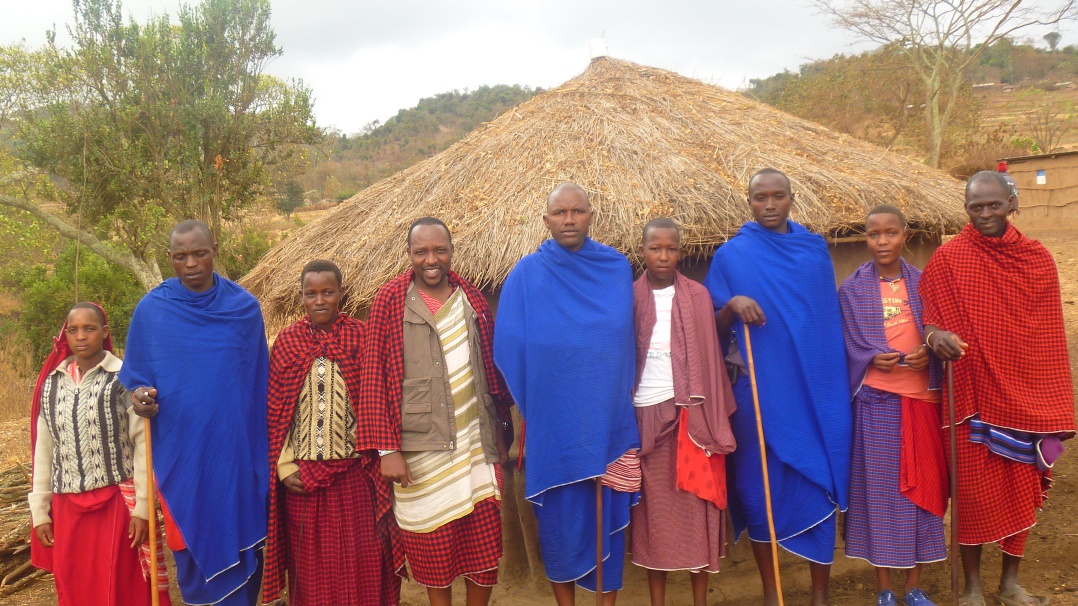Girls' Hope
Girls’ Hope is a project of the NGO Early Marriage Tragedy in Maasai Society in partnership with AMF designed to help stop early marriage in the Maasai society and allow Maasai girls to continue their education and reach their full potential. Child marriage is driven by gender

inequality and the belief that girls are somehow inferior to boys. 31% of girls in Tanzania are married before their 18th birthday and 5% are married before the age of 15. According to UNCEF, Tanzania has the 11th highest absolute number of children brides in the world, 779,000. We work to educate pastoral Maasai communities in the Monduli District of Tanzania about the advantages of girls getting an education, as well as the problems associated with early marriage.
Two separate incidents resulted in Lengare Mollel and Julius Kipuyo forming the NGO Early Marriage Tragedy in Maasai Society.
When Lengare was a young man his 6-year-old sister underwent female genital mutilation. She bled excessively and eventually collapsed. The family did not want to take her to the hospital. One reason was that FGM had recently become illegal in Tanzania. Also, the women did not understand the seriousness of the situation, and thought that since other girls were OK she would be OK as well. Lengare managed to load his unconscious sister on a motorcycle and take her to the hospital despite their protestations that that was not the Maasai way of doing things. She needed a transfusion and was treated for a pelvic infection. When he

brought her home after she was released from the hospital five days later, the family looked at him as a betrayer and he was shunned. Though he was able to save his sister, Lengare realized that other girls might not survive, and began thinking about what he could do to help girls like his sister.
Then, in September 2010, Julius Kipuyo and Lengare Mollel were walking in the Engaruka area near Oldonyo Lengai Mountain. They met a 14-year-old girl who was six months pregnant grazing goats on a very hot day. They felt sad

seeing her and asked her about her situation. Her parents had taken her out of school when she was 12, and married her off as the fifth wife of a 53-year-old man. Her parents wanted the money they would get as a bride price for her, and did not take her feelings about the marriage into account. After tending goats all day, she still had to gather firewood, prepare dinner, and do other chores, despite her condition.
Lengare and Julius realized there was no way they could help that particular girl, but those two experiences were the impetus to start an organization to educate the whole pastoral community.
In these communities families may view girls as less capable of taking advantage of educational opportunities than boys. They are considered a burden, and the bride price may be needed in order for the girl’s brother to marry. Girls may be betrothed before they are born, and are often sent to live with their in-laws as young as age 9. The groom expects female genital mutilation to be performed once the marriage is agreed on, and has the right to consummate the marriage before the girl leaves her parents’ home. Girls work for their in-laws until they are twelve, and are often pregnant before they are 13 years old.
Girls' Hope Project works to inform the families of girls about the health risks of female genital mutilation, which include:
• the transmission of sexually transmitted diseases including AIDS
• infections including tetanus
• cysts, abscesses, and keloids
• problems with urination and urinary tract infections which left untreated can lead to kidney failure
• chronic pain which can result in depression
• problems in childbirth for the mother including prolonged and obstructed labor
• risks of increased infant mortality.
We also work to educate families about the risks of early marriage. In additional to being deprived of an education, early marriage increases young girls’ risk being abused and/or abandoned. There can be serious psychological effects from forced sex, loss of personal freedom, and the stress of taking on maternal responsibilities at such a young age.
Please join us at Girls' Hope in our efforts to raise awareness on the rights of girls and women in pastoral communities as we seek to provide girls with viable alternatives to marriage, and give girls a voice in their own destinies.
How You Can Help
- $15 will buy pads for a flip chart and pens to use in a workshop for women in a village.
- $70 will pay for transportation for a staff member to travel to a remote hamlet to conduct a workshop.
- $383 will buy a cow for a girl's family so she can stay in school through High School


Girl clinging for life after being cut

Langari, meeting with women who do the cutting









 Home
Home Giving back Tuesday
Giving back Tuesday Overview
Overview



